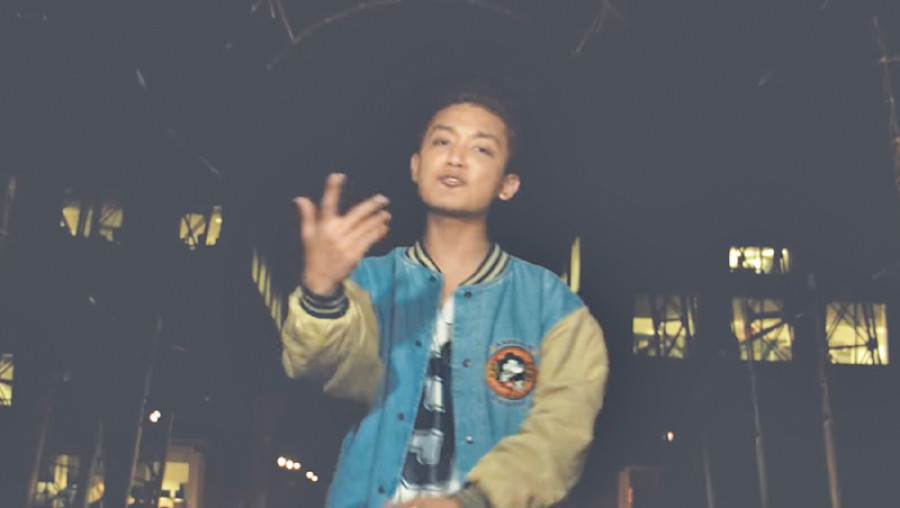Miscellaneous
Nepali verses, American dreams
Rapper Yodda, in his single Malai Baal, succeeds where many have failed —elevating a genre
Mark Harris
The Nepali rap scene has found its latest rising star. Yodda, a young Nepali artist living abroad, with his latest single, is already turning a few heads. The track, titled Malai Baal, which in Nepali slang loosely translates into “I don’t care”, is one of the first and few examples of a Nepali artist making music in a hip-hop sub-genre known as trap music. And the novelty is exhilarating.
Trap started in the notoriously dangerous and crime-ridden streets of Chicago’s South Side. The music is slow-paced and can sound jarring to an unfamiliar listener. The lyrics of trap tend to speak about the drugs and violence associated with gang culture. While Yodda may have taken the production hints from the genre, the topic of his lyrics is decidedly different.
In Malai Baal, the video begins with Yodda running barefoot through a sub-urban neighbourhood, with its manicured lawns and wide, paved roads. Immediately, the viewer can guess that he is not in Nepal. As the video progresses, he stumbles and falls to the ground, and the video cuts to a shot of Yodda, lying on his back, staring up at the sky.

A pair of running shoes now rest beside him. The slow motion shots of Yodda inexplicably running through the suburbs creates a dream-like environment. And as the chorus, with its bassy augmented voice, finishes, the shot moves from an afternoon in the suburbs, to a night time shot of Yodda standing in front of what appears to be tenement house.
To get a sense of the meaning behind these shots and the video, I caught up with the artist for further clues. He explained that the sneakers represented getting back on your feet, and overcoming the challenges along the way. When asked to describe the meaning of the symbols in his video, Yodda wrote, “I’m a man with a goal, and I am running barefoot at first. It suggests that I have struggled a lot. When I get knocked out, it is meant to show that I have failed numerous times along the way. But as I start running again, I find a microphone, which means that as a rapper it is my goal to find my voice and purpose by blessing the mic.”
What makes this video interesting is the way he’s adapted the dark atmosphere typically seen in music videos from the “trap” genre, while avoiding the images of crime and violence that is all too familiar. The contrast between gangster rap beats, mixed with Nepali lyrics that deal with more elevated concepts than selling drugs, while being shot in the UK, gives the audience a lot to consider and unpack. The result is a music video that is at once, unique and entertaining.
As the songs moves through Yodda’s tight verses, he finishes his lyrics with a commitment to his craft, against all odds. He raps about the value of sacrifice and of making music in his native Nepali, while having American dreams. Hip-hop, in many ways, embodies the spirit of that “American Dream”, and the myth that a person, with the right combination of talent, hard work, and luck can become rich and famous from rhyming alone.
While this writer is hesitant to celebrate the embrace of the “American dream”, Yodda’s commitment to the music shines through his lyrics. In his final lines he states, “I’m collecting all the small and important parts of my dreams, in the absence of quality time, I solve my problems, I do my research and take steps to further, to another layer, to decorate my dreams.”
The dream-like atmosphere of the music video lends well to lyrics that speak about the chasing of dreams, to create a product that is thematically consistent. More than this, the video and the music’s high level of production has created something that raises the bar for hip-hop in Nepal. I will be looking out for Yodda’s next music video and his forthcoming mixtape and can’t wait to see and hear what he’ll be spitting out next.




 6.12°C Kathmandu
6.12°C Kathmandu








%20(1).jpg&w=300&height=200)

